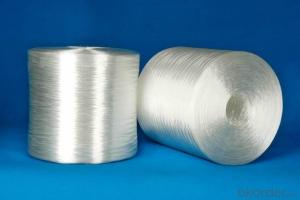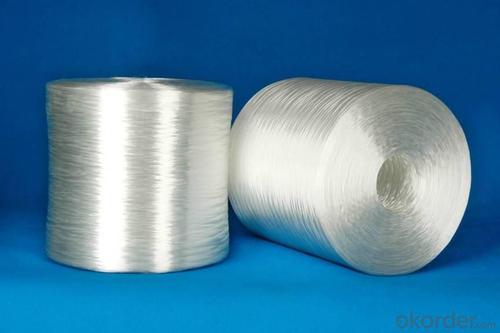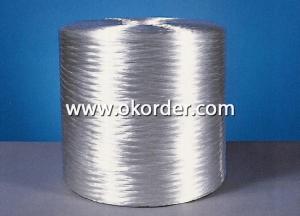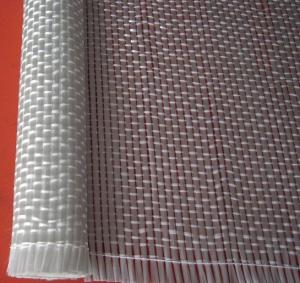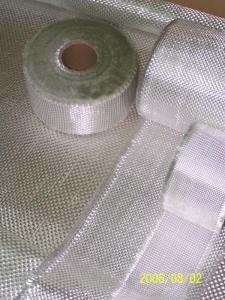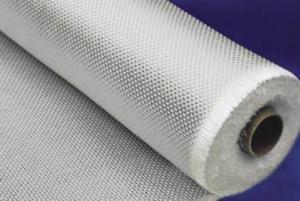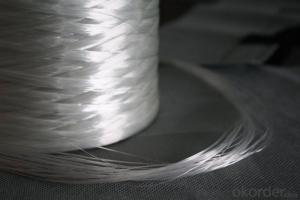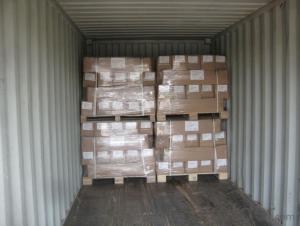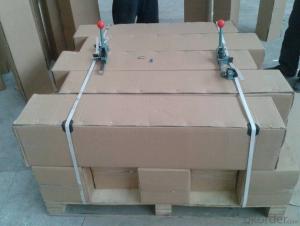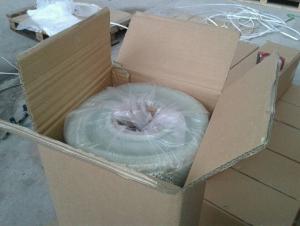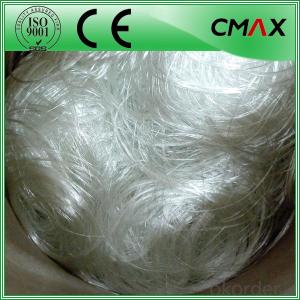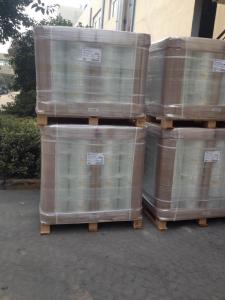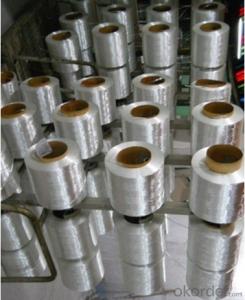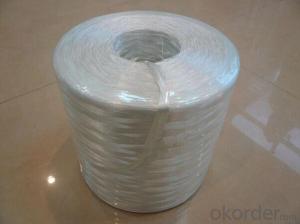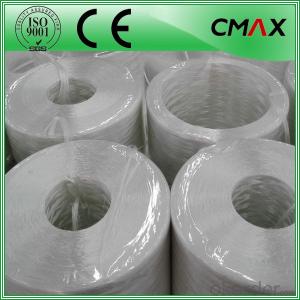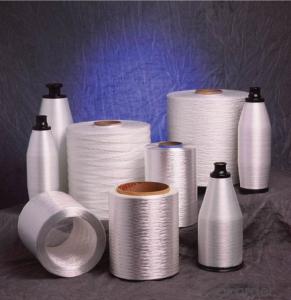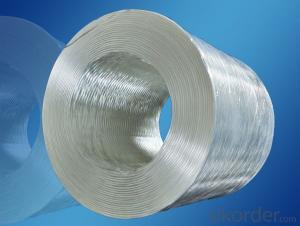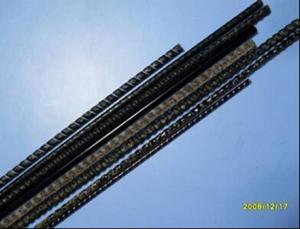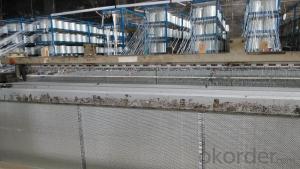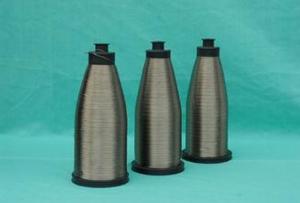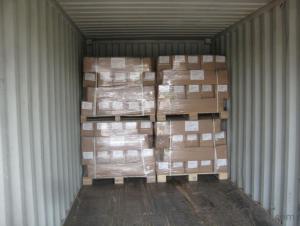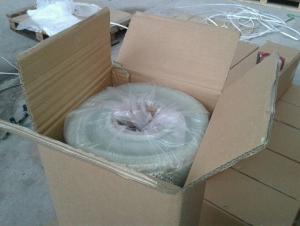Fiberglass Roving Cloth for Direct Roving Filament Winding
- Loading Port:
- China Main Port
- Payment Terms:
- TT or LC
- Min Order Qty:
- -
- Supply Capability:
- -
OKorder Service Pledge
OKorder Financial Service
You Might Also Like
Direct Roving for Filament winding |
Direct Roving for Filament winding, is compatible with unsaturated polyester, polyurethane, vinyl ester, epoxy and phenolic resins. Main uses include manufacture of FRP pipes of various diameters, high-pressure pipes for petroleum transitions, pressure vessels, storage tanks, and, insulation materials such as utility rods and insulation tube. |
Product No. | Nominal Linear Density, tex | Product Features | Resin Compatibility |
308 | 1200、2000、2400 | Compatible with epoxy resin, designed for filament winding process under high tension | Epoxy resin |
396 | 2000 | Compatible with polyurethane; Excellent mechanical properties of the composite product | Polyurethane |
386T | 200、300、600、1200、2400、4800、9600 | Compatible with resins; Low fuzz; Superior processing property; High mechanical strength of the composite product | Unsaturated polyester, vinyl ester, epoxy and phenolic resins |
310 | 1200、2400 | Excellent electrical property | Epoxy resin |
386 | 200、300、600、1200、2400、4800、9600 | Compatible with resins; Excellent mechanical properties of the composite product | Unsaturated polyester, vinyl ester and epoxy resins |
306B | 735 | Excellent process performance; Excellent chemical corrosion resistance, such as crude oil and gas H2S corrosion etc; Excellent abrasion resistance | Epoxy resin, unsaturated polyester and vinyl ester. |
318 | 300、600、735、1200、2000、2400 | Compatible with epoxy resin; Low fuzz; Designed for filament winding process under low tension | Epoxy resin |
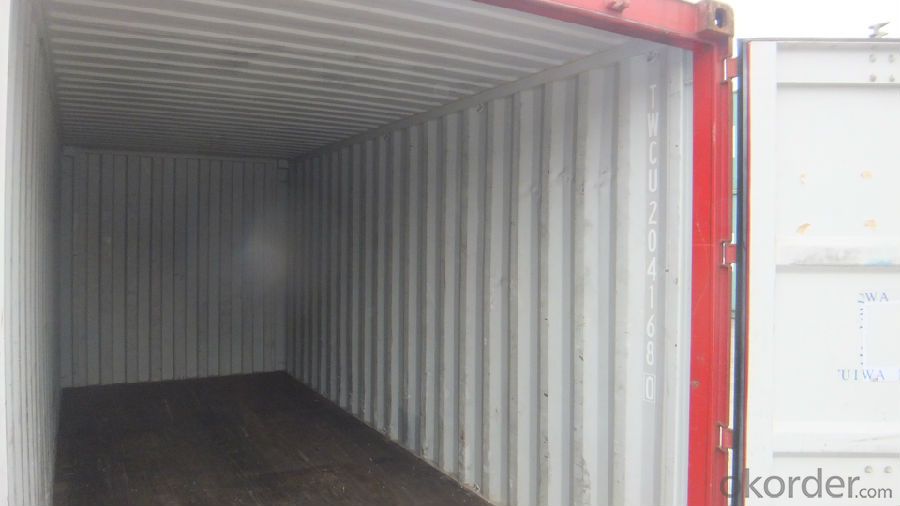
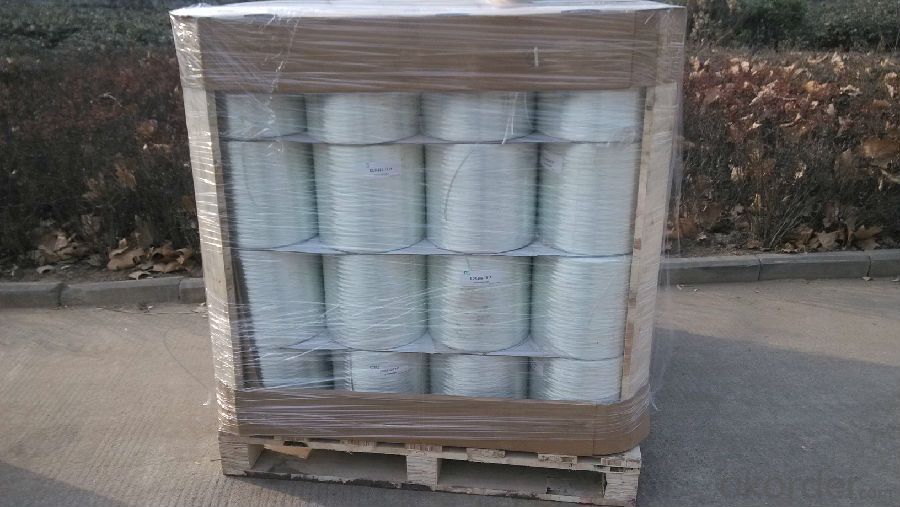
- Q: The difference between the BMC and DMC DMC?
- DMC is an ordinary premix molding compound with flame resistance and insulation. As continuously promotion, its social demand increases rapidly in United States. BMC has many different names.It mainly uses the polyester molding compound for production. Such great value and vitality of the new materials like BMC will play an increasingly important role in a wide range of areas. DMC is also known as the BMC. Although the development and application of BMC in China started late, it significantly promoted the industrial materials and technological progress. Because of their similar nature and process consistency, bulk molding compound such as DMC has the feature of leakage resistance and rigidity. especially the tensile strength of BMC which is based on unsaturated polyester. BMC refers to modified premix molding compound based on isophthalate polyester resin. With mass production and free coloring, it is irreplaceable for other raw materials. Bulk premix molding compund. In 1989, the development of everthing is inevitable.
- Q: What are the main molding processing methods of plastics
- There are many methods of plastic forming. Six main forming methods are listed below: 1 injection molding and injection molding, extrusion molding. 2. extrusion molding, which is the main molding of thermoplastic plastic molding, 3 hollow blow molding, also known as the 4 compression molding also called compression molding. The upper and lower mold installation the template in the press on, the plastic material directly into the cavity, the mold is closed, full of plastic cavity in the heat and pressure, setting after plastic products. 5, injection molding and transfer molding. One of the main forming method is thermosetting plastics. It is feeding room, plastic pellets into mould in the heating, melting plastic under pressure through the pouring system of bottom mold transfer chamber fills the cavity, and then cure it. 6, solid molding molding plastics in melting temperature, in the molding process No obvious flow condition, for two times molding plastic sheet, such as vacuum molding, compression molding and air pressure molding, original for thin-walled parts molding, first used in the manufacture of thick wall parts. 7, other molding calendering, there are many casting plastic molding methods...
- Q: The safe operation of glass fiber twisting frame
- The operator is responsible for hook wrap, decollation, changing roving and cleaning. Doffer is responsible for cleaning. Both of them needs skills.
- Q: Is arbon fiber better than glass fiber reinforced plastic
- Lighter and more toughness.
- Q: What can glass fiber do?
- Glass fiber felt can be used in wide range. Glass fiber can also be used as a thermoplastic. Glass fiber can be used as glass fiber clothes, and made for thermosetting plastics.
Send your message to us
Fiberglass Roving Cloth for Direct Roving Filament Winding
- Loading Port:
- China Main Port
- Payment Terms:
- TT or LC
- Min Order Qty:
- -
- Supply Capability:
- -
OKorder Service Pledge
OKorder Financial Service
Similar products
Hot products
Hot Searches
Related keywords
